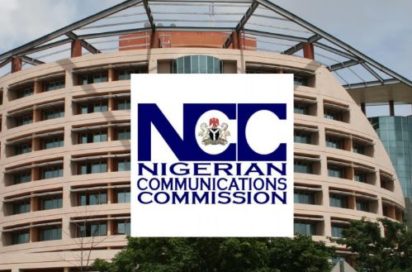
Nigerian Communications Commission (NCC) has warned against vandalism of telecommunication infrastructure, stressing that the act is compromising Federal Government’s efforts toward achieving 30 per cent broadband penetration in 2018.
Miss Helen Obi, the commission’s Head of Zonal Operations in Niger, said this at a one-day sensitisation programme
on “Protection of Telecommunication Infrastructure” on Thursday.
According to her, telecom infrastructure serve all citizens and should be owned collectively and everyone should
work against its vandalism so that it can serve the purpose for which it is meant.
She said “we are here to sensitise the people as stakeholders not only as consumers, including local governments and agencies of Federal Government on the need to protect telecom infrastructure.
“This is actually key to the 8-point agenda of the NCC Chief Executive, Prof. Umar Danbatta, to ensuring quality
service and broadband penetration.
“This is because tampering with these infrastructure compromises the efforts of government to meet the 30
per cent broadband penetration target for 2018.”
She said that so far, NCC had achieved 22 per cent broadband penetration and hoped to reach 30 per cent target.
Dr Lawal Bello of the Department of Technical Standards and Network Integrity (TSNI) of the commission,
said that the industry had continued to lose huge sums of money as a result of vandalism of telecom infrastructure.
He said that the spate of destruction of telecom infrastructure across the country had slowed down the growth of services.
Bello outlined some of the challenges facing the sector as willful damage of telecom infrastructure to extort money from service providers, and local communities or individuals barring technical staff of service providers from installing equipment or carrying out repair on existing systems.
He added that diesel theft and digging up of cables for sale were also among the problems.
The TSNI official said that NCC had been using various avenues such as the Consumer Outreach Programme, the Telecom
Consumer Parliament to sensitise people and to educate them about the dangers associated with vandalism of such infrastructure.
He called for speedy passing of the bill of Telecom Infrastructure and the need to declare it a national asset.
Bello added that the protection of telecom infrastructure was not only NCC’s responsibility or that of security agencies, but of all patriotic citizens.
Mr Abubakar Salisu, the Permanent Secretary, Human Resources, Office of the Head of Service in Niger, urged
the commission to give incentives to states that have less cases of vandalism.
According to him, incentives will encourage states to do more and make others to follow.
NCC statistics shows that Niger has the least occurrence of telecommunication infrastructure vandalism.
During the sensitisation programme, telecom users were given opportunity to ask questions and lay their complains,
which the commission pledged to look into.
In attendance were security agencies, community members and telecom operators and associations.
NAN